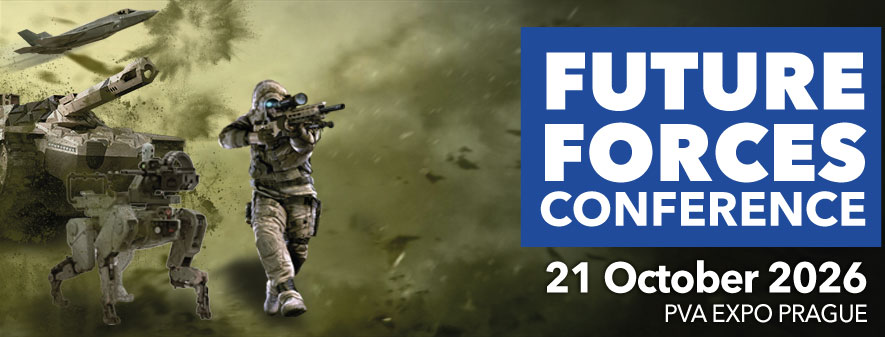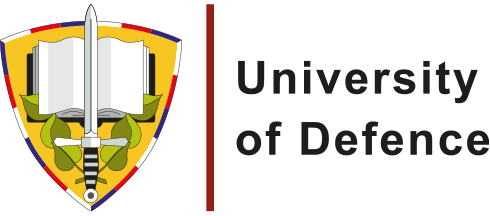|
FFF General Partner |
|
FFF Partner |
|
FFF R&D Partners |
|
Exhibition Partners |
|
Mobility Partner |
|
|
- DATE: Wednesday, 16 October 2024
- TIME: 10.00 – 12.30 h
- VENUE: PVA EXPO PRAGUE – Congress Hall 1, Entrance Hall 3, 1st Floor
- OFFICIAL LANGUAGE: English
- REGISTER ONLINE – Free online registration

Opening Strategic Level Panel:
Multi-Domain Operations, Future Conflicts and Operational Environment
SPEAKERS & PANELISTS
- Gen. Philippe LAVIGNE – Supreme Allied Commander Transformation, NATO ACT / French Air and Space Force
- Lt. Gen. Karel ŘEHKA – Chief of the General Staff, Armed Forces of the Czech Republic
- Maj. Gen. Andrus MERILO – Commander, Estonian Defence Forces
- Gen. (Ret.) Jiří ŠEDIVÝ – Former Chief of the General Staff, Armed Forces of the Czech Republic
- Air Marshal Ian David GALE – Former Commander of Strategic Command, UK Ministry of Defence
- JR Mc DONALD – Vice President F-35 Business Development, Lockheed Martin Corporation, USA
MODERATOR
- Brig. Gen. (Ret.) František MIČÁNEK – Former Dean, NATO Defense College;
INTRODUCTION – FUTURE WARFARE CONCEPT
The current and future security threats, along with the dynamic development of new (disruptive) technologies, require an adaptation of force development planning. Our adversaries have adapted to the new situation and developed effective counterstrategies, often based on the study of Western style warfare.
New technologies such as artificial intelligence, hypersonics, machine learning, nanotechnology, or autonomous systems and robotics are fundamentally changing the nature of war. As these technologies mature and their military applications become clearer, they have the potential to revolutionize the battlefield in a way we have not seen since the integration of machine guns, tanks, and air power ushered in the era of combined arms.
The information society is defined by the ever-increasing volume of data, and in this space a continuous battle is being waged using cyber and information assets in combination with all other instruments of state power (political, economic, and military). This has expanded the understanding of the definition of war beyond how we have defined war in the past.
Our goal is to strive for integration, not just in the narrow sense of military integration, but integration of all available capabilities that a society possesses. Joint, more thorough integration of activities on the ground, in the air, at sea, in space, and in cyberspace (electromagnetic domains), as we have defined it in our concepts, is no longer enough.
NATO's concept of multi-domain operations refers to the integration of capabilities across various domains such as land, air, sea, cyber, and space to achieve military objectives. It emphasizes the coordination and synchronization of efforts across these domains to enhance operational effectiveness and adaptability in modern warfare scenarios.
Overall, the future development of multidomain operations will require a holistic and adaptive approach that integrates technological innovation, organizational transformation, and international cooperation to maintain NATO's strategic advantage in an increasingly complex security environment.
MAIN AREAS OF DISCUSSION
- Interoperability: Ensuring that different military branches and allied forces can effectively communicate, share information, and coordinate actions across multiple domains.
- Integration of Emerging Technologies: Incorporating rapidly evolving technologies such as artificial intelligence, cyber capabilities, and unmanned systems into multidomain operations while managing their complexities and potential vulnerabilities.
- Cybersecurity: Protecting military networks, systems, and data from cyber threats and ensuring resilience against cyber-attacks that could disrupt operations across multiple domains.
- Command and Control: Establishing robust command and control structures and processes to effectively oversee and coordinate operations spanning multiple domains.
- Training and Education: Providing personnel with the necessary training and education to understand and operate within a multidomain environment, including cross-domain awareness and collaboration skills.
- Doctrine and Concept Development: Developing coherent doctrine and concepts of operations that account for the integration of capabilities across different domains and align with NATO's strategic objectives and commitments.
| Program may be subject to change.





